For those whose lives collide with the world's sharp corners.
- rjlucking66
- Sep 11, 2021
- 3 min read
Updated: Feb 19, 2022
In dreams, he found Edward Hopper whose paintings offer a retreat for those whose lives collide with the world's sharp corners. Hopper said, “the inner life of a human being is a vast and varied realm.”
In the lobby of ‘New York Movie,’ (1939) the lovers are reunited.
She is the pensive usherette inviting him to enter a beautiful sad world of sumptuous colour, where well-worn bosom seats envelop and reassure, and wretched thoughts are lost.
The house lights dim as he places his hand on her flickering illusory waist, kissing her without end.
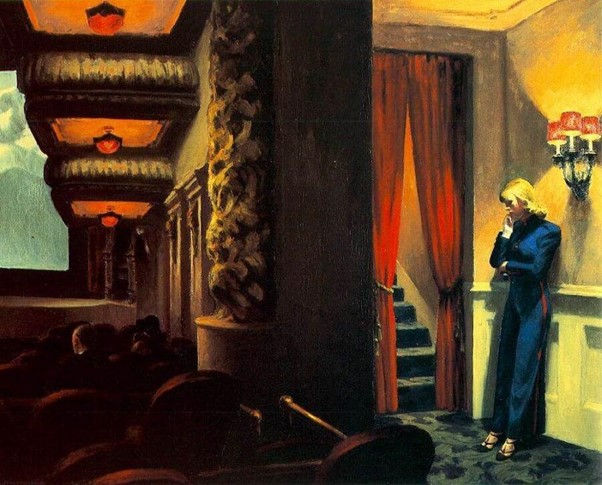
In Compartment C Car (1938) she is measured, cool and elegant, flicking through a research paper that although interesting in parts, cannot hold her attention for long.
She allows herself a moment of introspection, then as if realising that the world she once knew, the one on the other side of the carriage window is leaving their transient souls behind, wipes a beautiful tear from her silky cheek.
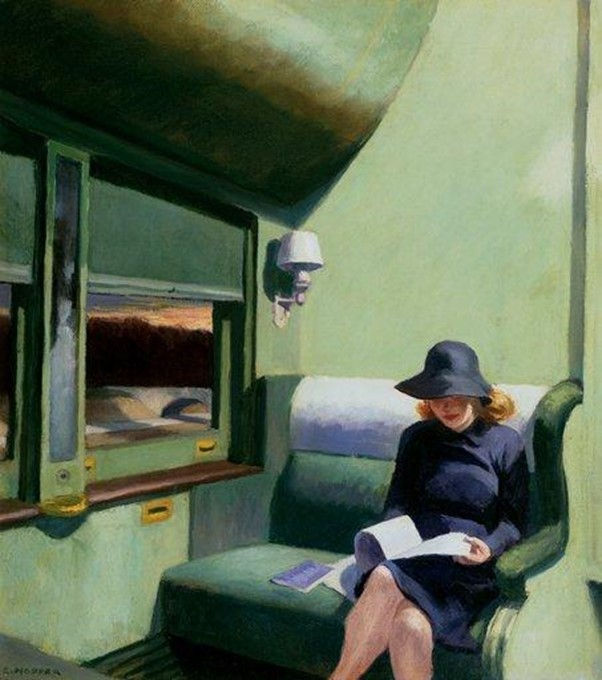
She is a timeless chameleon, desirable, sensuous, dangerous, untouchable, concealing and revealing.
Solitude and variety are found in hotel rooms.

Hotel Room, 1931.
A critical disembodied interloper scrutinised his every thought.
The voice of an omnipotent, sneaking about, hiding in walls.
Only God knows how it had crossed into Hopper’s world, perhaps it is God?
His mother said, “There is no peace for the wicked, and even less for the good.”
You like to think of yourself as a sensitive observer, but you are an immature egotistical voyeur.
She must leave you.
How could anyone love such a poor weak tormented terrified man?
Who has written the note she holds?
What business is it of yours?
For fuck’s sake her body is barely cold, yet you wonder if strewn clothes are a sign of her anger for you or enthusiastic sex with another.
Daring to ask if art can bridge the gap between the living and the dead.
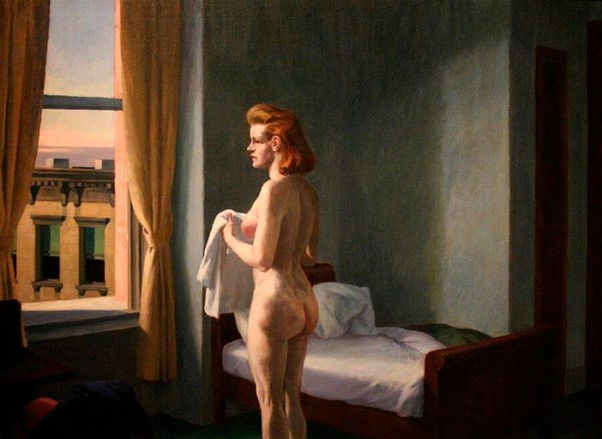
Morning in a City, 1944.
Naked in contemplation, the morning sun draws her toward a window where she gazes into nothingness.
She hasn’t spent the night thinking of you.
She has slept comfortably and has enjoyed a long shower.
Your destructive dependent love left her no air to breathe. She needs time to heal, recover, and live again.
In death, you are no longer part of her life.
She has cleared you from her mind both corporeally and spiritually.
You are ineffable.
Why are you preoccupied with her?
Soon you will have forgotten her intriguing heterochromic eyes, her full lips, that neat straight nose, sculpted chin, and masterful eyebrows.
As you lay with your latest fallen angel, you cannot recall her nakedness. No matter how hard you try.
She has grown old happily without you.
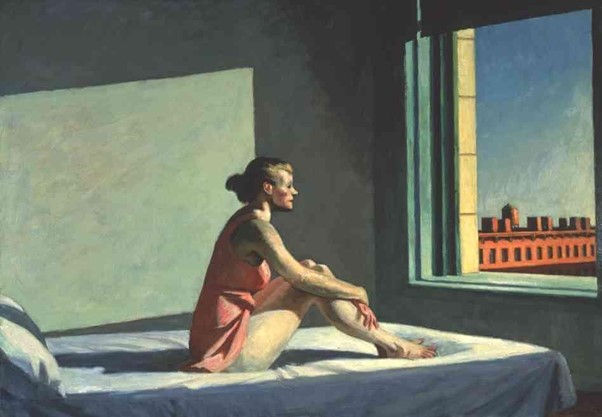
Morning Sun, 1952.
Pursuing her thoughts and dreams alone.
Still beautiful in age.
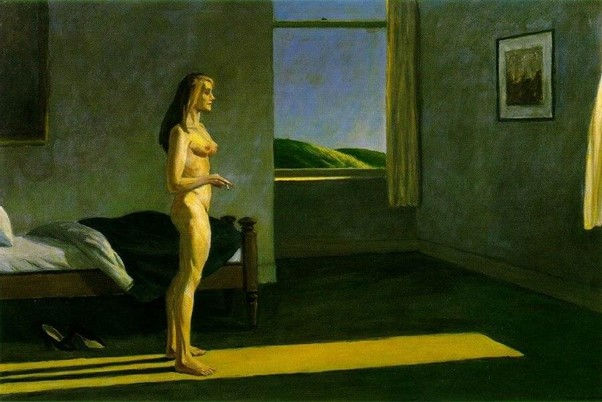
A Woman in the Sun, 1961.
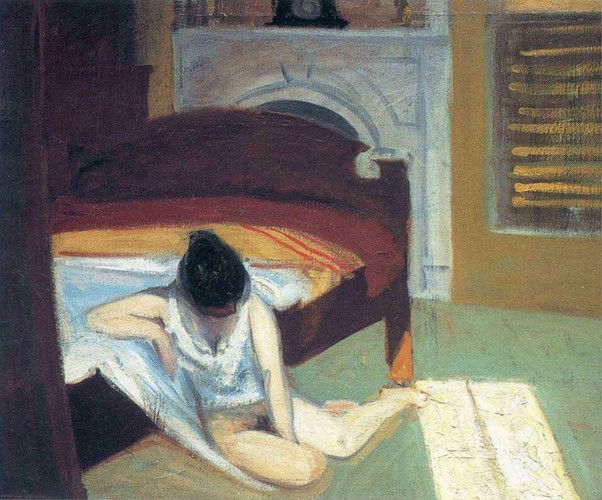
Summer Interior, 1909.
Fork-tongued repressed anxieties say she is despondent, disconsolate, that she can only know unhappiness without you.
Deluded fool!
Your soul is barely furnished, not hers.
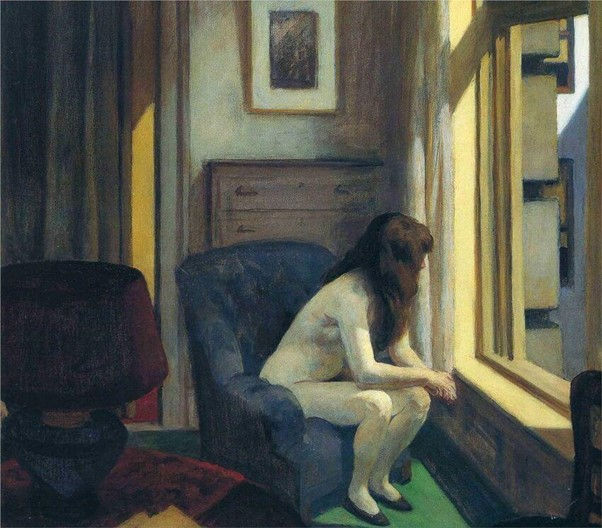
Eleven A.M., 1926.
Her sexuality is frightening, it cannot be contained nor regulated.
You are denied access to her thoughts.
The cold paleness of her skin.
You can look but no longer touch.
Carrying the sinful voyeuristic gaze of men, fly-tippers of toxic emotions, she is best observed safely from a distance.
You like to watch them watching her.
Go on, scurry to the confessional.
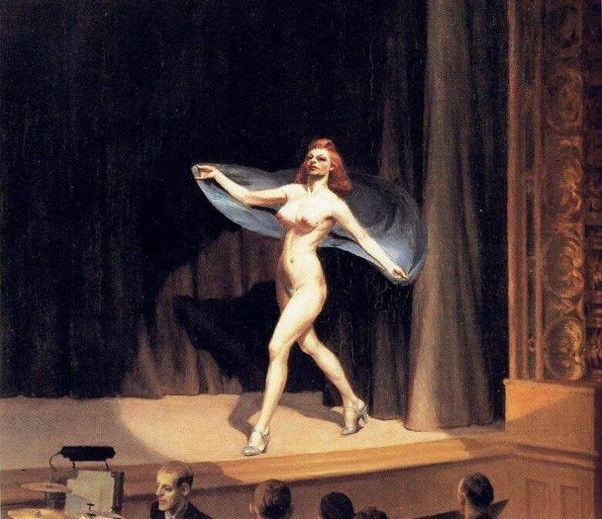
Girlie Show, 1941.
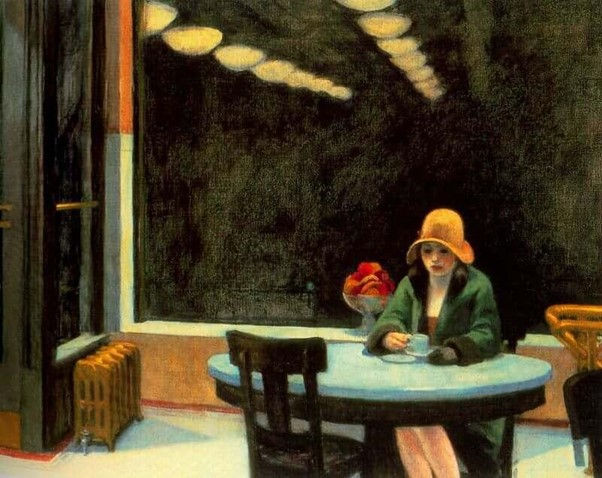
Automat, 1927.
You think her isolated and vulnerable; she isn’t.
She is enjoying a moment of peace after a premiere of a play, where would-be suitors pestered her for a date.
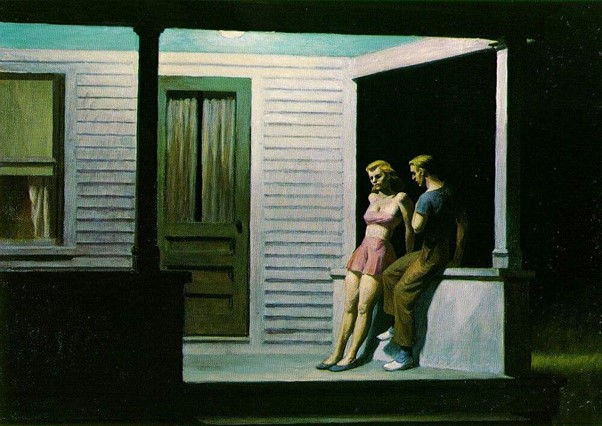
Summer Evening, 1947.
In a youthful charming and cheering world, a cerulean ruffleless sky promised
a long and occasionally happy life together as sweethearts.
Later, dependency and disillusionment replaced sexual tension.
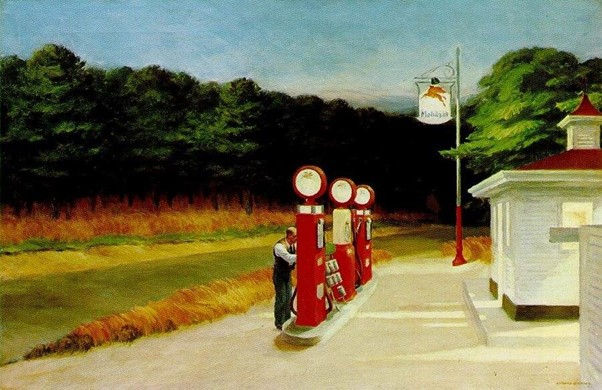
Gas,1940.
Hopper’s paintings are the grappling hooks preventing a slow descent into madness. Time spent in his illusory world paradoxically enables us to keep a tenuous grip on reality, to straighten out past lives.
His cinematic viewpoints and eerie silences prompt revelatory thoughts.
Dark woods and purest of white light, solitary figures in offices and hotel rooms, help us come to terms with our griefs and disappointments, hoping against hope that tomorrow might be the first day in a new life full of humanity, colour, and form.
To dam up grief is a beautiful thing.




Comments